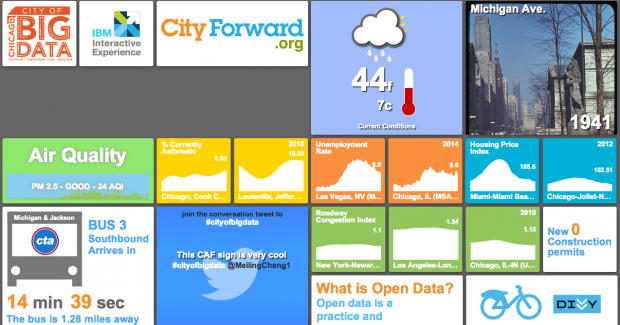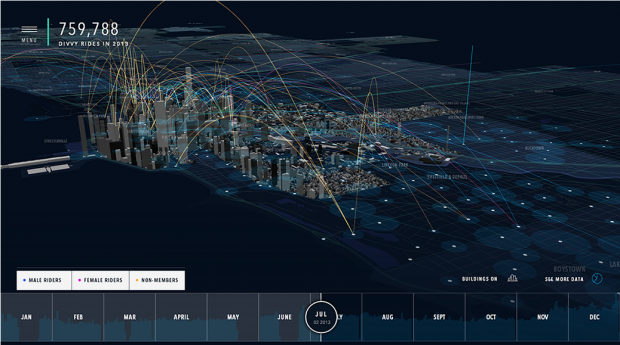
‘Did you know data has become a 21st century design material?’
This is the question posed by the exhibition, Chicago: City of Big Data. Most people are by now familiar with this overused term, but few are considering the way architects, planners and engineers are using Big Data to remould the urban spaces they inhabit. So began Chicago: City of Big Data, organised by the Chicago Architecture foundation- a free exhibit designed with aim of showing the citizens of Chicago how data is interwoven into the fabric of their everyday lives.
According to Ingrid Haftel, the associate curator, the exhibition will allow visitors to:
- See hidden digital infrastructure revealed at the intersection of Clark Street and Devon Avenue, through cameras that monitor city operations and public safety, for example;
- Browse health information for broad disease categories in your neighborhood with Chicago Health Atlas;
- Collect air quality data with Air Lab, a summer workshop that used sensors to collect data on indoor air quality in several residential buildings in Humboldt Park;
- Explore the architecture of Big Data at the 1.1 million square foot, multi-tenant datacenter at 350 East Cermak Road, and;
- Explore a year’s worth of bike share, Twitter, and 311 call data, visualized in real-time on a digital model created in collaboration with leading design firm Skidmore, Owings & Merrill.
Through the CAF’s partnership with IBM, the IBM Interactive Experience contributed The Chicago Dashboard, an interactive dashboard which displays stats about the city in real time.
There is also the option to create a personalised Data Trail. By contributing your daily activities and movements around the city, the Data Trail will show you how you individually contribute to the volume of data generated every day.
The exhibition aims to get people thinking, and create dialogues about the multi-faceted ways in which Big Data influences- and hopefully improves- our daily lives in urban environments.

Read more about it here.
(Photo credit: The Chicago: A City of Big Data website)






